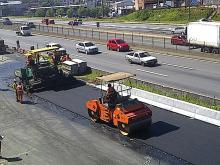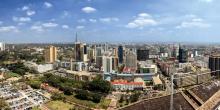The Brazilian Government has identified around 10,000km of new highway concessions. This programme will be achieved through a new road maintenance scheme called Programa Nacional de Manutencao de Rodovias (PNMR). The scheme will seek the replacement of existing road maintenance contracts with PPP or other concession arrangements in five years. Brazil has around 9,900km of privatised roads at the moment. Including blocks part of the PIL scheme, this figure stands at 17,000kms. The main aim of the PNMR plan w
The Brazilian Government has identified around 10,000km of new highway concessions. This programme will be achieved through a new road maintenance scheme called Programa Nacional de Manutencao de Rodovias (PNMR). The scheme will seek the replacement of existing road maintenance contracts with PPP or other concession arrangements in five years. Brazil has around 9,900km of privatised roads at the moment. Including blocks part of the PIL scheme, this figure stands at 17,000kms. The main aim of the PNMR plan will be to save the Brazilian Government up to 30% of its road maintenance costs.
The move comes as a result of budget cuts, Brazil's Transport Infrastructure Department (DNIT) is having to take extreme measures. In addition to renegotiating all road maintenance contracts, DNIT also intends to be exempted from federal road concessions. Work on new roads has slowed down by 45% and contracts have been extended. Road maintenance works have been reduced by 35%. DNIT will invest less than US$1.66 billion in 2015, compared with $2.85 billion invested in 2014. And road investments are expected to remain low in 2016.
The move comes as a result of budget cuts, Brazil's Transport Infrastructure Department (DNIT) is having to take extreme measures. In addition to renegotiating all road maintenance contracts, DNIT also intends to be exempted from federal road concessions. Work on new roads has slowed down by 45% and contracts have been extended. Road maintenance works have been reduced by 35%. DNIT will invest less than US$1.66 billion in 2015, compared with $2.85 billion invested in 2014. And road investments are expected to remain low in 2016.






